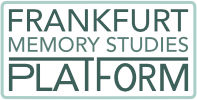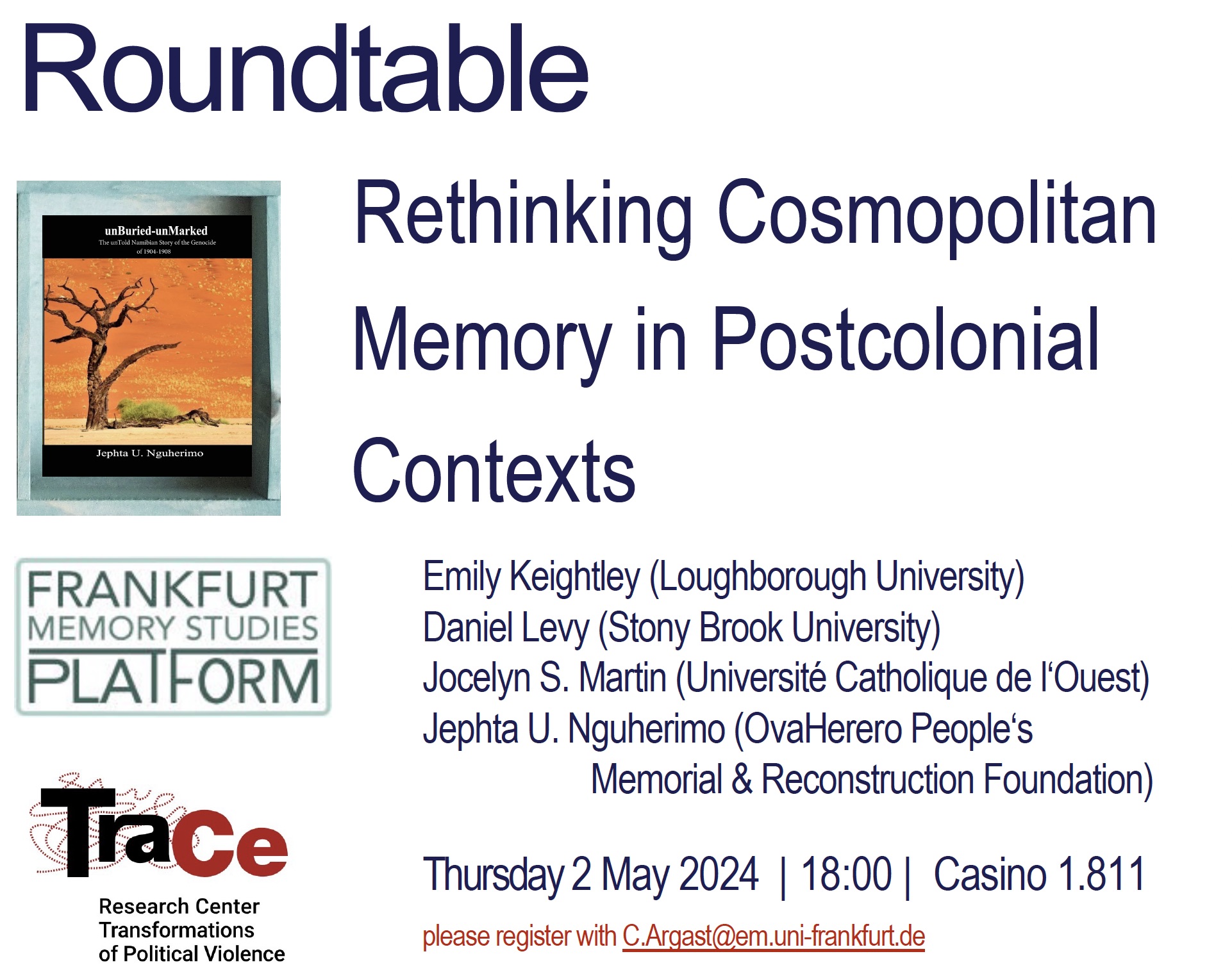Thursday, May 2, 2024, at 6 pm (18:00 s.t.)
Goethe University Frankfurt, Campus Westend, Casino, Room 1.811
The increasing globalization of collective memories has been at the centre of debates within the interdisciplinary field of Memory Studies for more than two decades. In the early 2000s, Daniel Levy’s and Natan Sznaider’s book The Holocaust and Memory in the Global Age (2001) energized discussions that led to the transcultural and transnational turn in Memory Studies. Their concept of “cosmopolitan memory” – based on the insight that memories of the Holocaust were used as a “template” for addressing political violence and genocide worldwide and had brought about new visions global justice – was widely discussed both as a conceptual tool and as a normative idea.
Over the past decade, concerns have been raised about the particular dynamics of cosmopolitan memory in postcolonial contexts. Claims for recognition and reparation of colonial injustices have caught increasing international attention. Political debates about the decolonization of international legal frameworks followed. Such more recent postcolonial and decolonial perspectives invite us to critically rethink the idea of cosmopolitan memory.
The public debates and political violence of the 2020s (the Mmembe-scandal, Documenta 15, the “historians’ debate 2.0,” the war in Ukraine, the Israel-Palestine conflict) brought home the need to rethink conceptualizations of cosmopolitan memory even more strongly. (How) can we adapt them to particular mnemonic contexts? How can we better pay attention to marginalized regions and debates? What happens when memories produced and curated in Europe travel to different regions in the Global South? How do descendants of colonial injustices and activists relate to “other people’s memories,” and how do they seek to mobilize cosmopolitan memory in their struggles for recognition and reparation? For example, what role do cosmopolitan dynamics currently play in debates about the colonial genocide of the OvaHerero and Nama in Namibia and Germany’s responsibility? Or in remembering imperialism and India’s 1947 partition among South Asian communities in the UK? Or how are memories of the Holocaust and Japanese occupation entangled in the Philippines?
Our roundtable opens up a space to discuss and develop new perspectives on such entangled and sometimes contradictory contemporary processes of mnemonic transformation. It brings together international scholars and activists engaging with cosmopolitan memory, post-colonialism and decolonization from a variety of perspectives.
Our guests are:
Emily Keightley (Professor of Media and Memory Studies, Loughborough University)
Daniel Levy (Professor of Sociology, Stony Brook University)
Jocelyn S. Martin (Associate Professor, Faculté des Humanités, Université Catholique de l’Ouest)
Jephta U. Nguherimo (Writer and Reparation Activist, OvaHereroPeople’s Memorial & Reconstruction Foundation, Washington/Windhoek)
The roundtable will be moderated by Kaya de Wolff (Ph.D. in Media and Communication Studies, with a thesis on memories of the OvaHerero and Nama genocide in the German press; Researcher in the TraCe Network)
Find out more about the event here.



